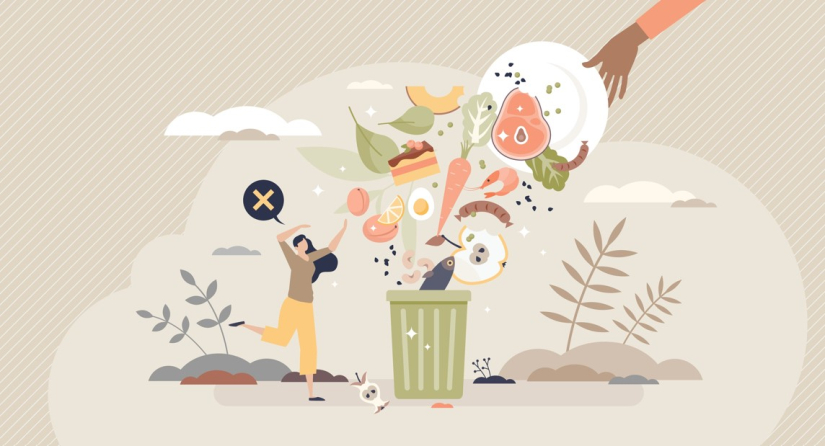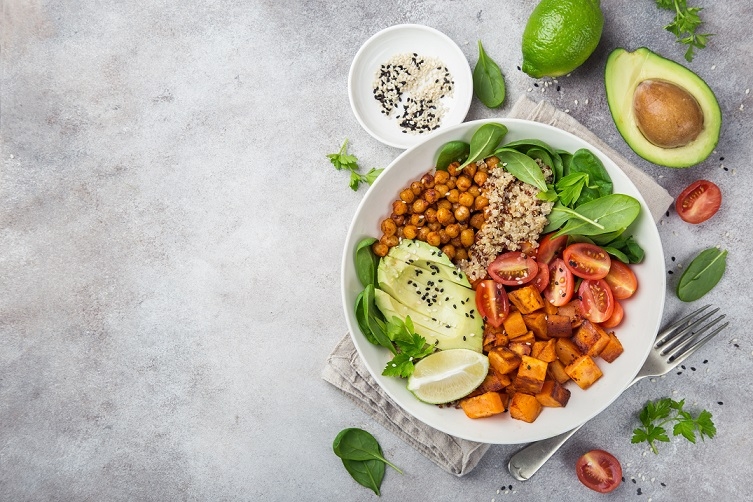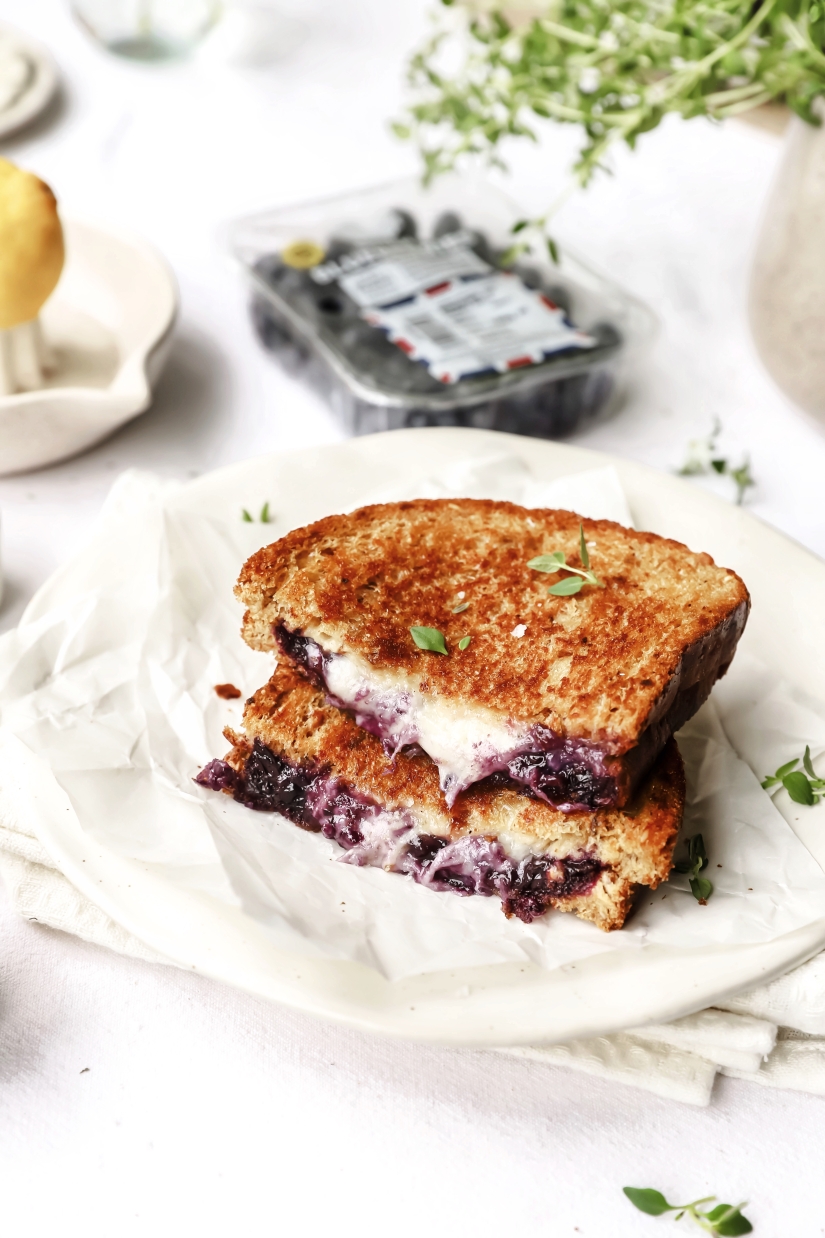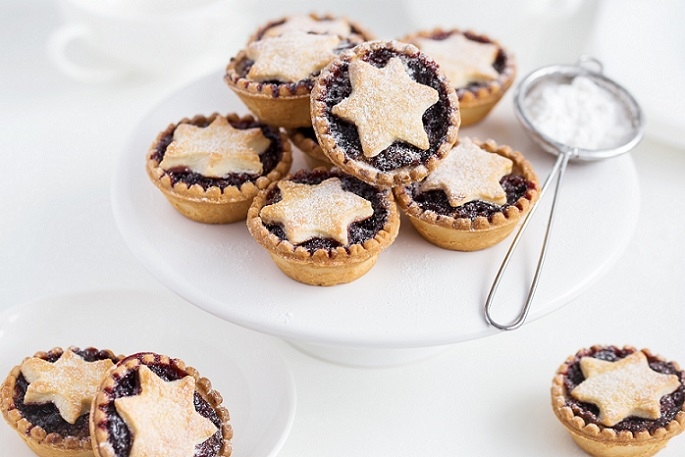Don’t despair though: you can continue to whip up beautiful bakes once you have a few tricks up your sleeve. We’ve put together handy hacks with some help from our columnist, Áine Carlin…
Mastering the elements
“Getting to grips with the science of baking can be a headache at the best of times,” Áine says. “Take away the usual binders, liquids, butters, and leavening agents, and you’ll soon be tearing your hair out. Whilst some vegan recipes require a simple swap, sometimes you have to think outside of the box.
“Coming from an Irish background, my first task on becoming vegan was finding an ideal buttermilk substitute – it’s a well-known hack now, but remains a must for perfecting those fluffy American-style pancakes, or rendering an indescribably light scone-bread that could easily rival my granny’s. Simply combine a tablespoon of good-quality cider vinegar to your chosen liquid (unsweetened soya works best), stir, and set aside for several minutes, until it begins to curdle. The acidity in the ‘buttermilk’ will react with the bicarb in your batter, thus resulting in flaky scones or pillowy pancakes.”
Binding agents, which essentially hold your bakes together, can be a bit more tricky: “Whilst I rely heavily on bananas, I also like flax egg (one tablespoon of ground flaxseed mixed with three tablespoons of water), and occasionally chia, aquafaba and sometimes other fruit/veg purées, depending on the recipe,” Áine says. “For example, if you use one mashed (slightly under-ripe) banana, you’re unlikely to notice the taste in the final product. If it’s combined with chocolate for, say, a batch of brownies, chances are that the sugar and chocolate content will completely override any residual banana flavour, but the texture will be nigh-on perfect. You could also use the equivalent amount of mashed sweet potato or even black beans.”
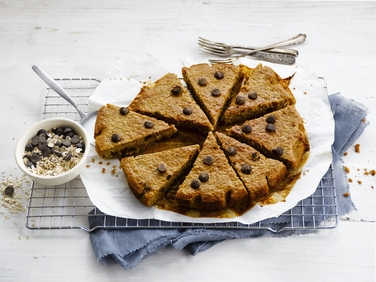
Veganising recipes
Dreaming about your grandmother’s Victoria sponge cake? Don’t be afraid of ‘veganising’ your favourite treat. In general, many recipes can be ‘veganised’ as long as you understand the components. That said, one ingredient that’s challenging to replace is egg: it’s better to avoid trying to veganise anything that requires more than three eggs, as you simply won’t be able to create the same balance.
Plant-based milks are typically interchangeable in baking recipes, though rice milk is best avoided as it’s too thin. “Soya milk is the most reliable option, with a high fat/protein content that really benefits any baked good, with Oatly coming a close second – although be sure to use the barista variety,” Áine says. Keep in mind that different flours have different uses as well. Áine suggests using spelt flour, which is a great all-rounder that can be used in everything from muffins, to cakes and breads. When it comes to sprucing up your bakes with icing and fillers, try Áine’s easy cashew frosting. Simply combine soaked cashews, agave, lemon juice, vanilla extract, and a splash of water. Blitz in a high-speed blender until completely smooth, then chill for at least an hour before spreading over your cake. Alternatively, try a more traditional buttercream by beating together chilled margarine and icing sugar. At the end of the day, experimenting makes the process that much more enjoyable. And if you fail, consider it a learning curve!
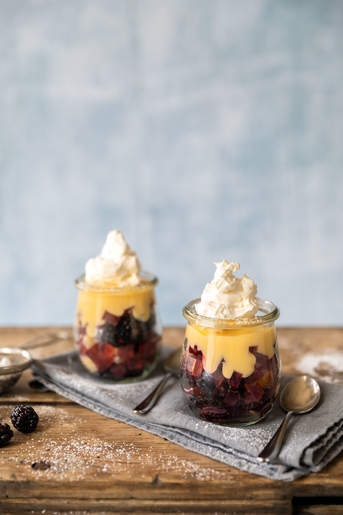



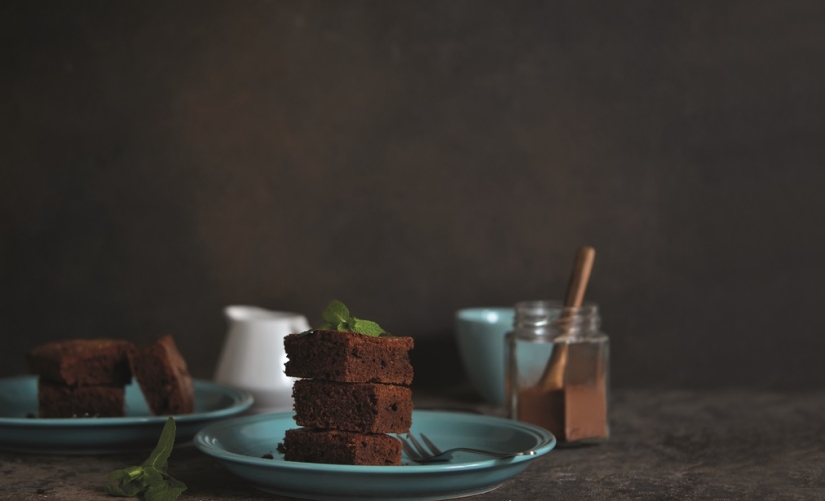
_825_589_int.JPG)
